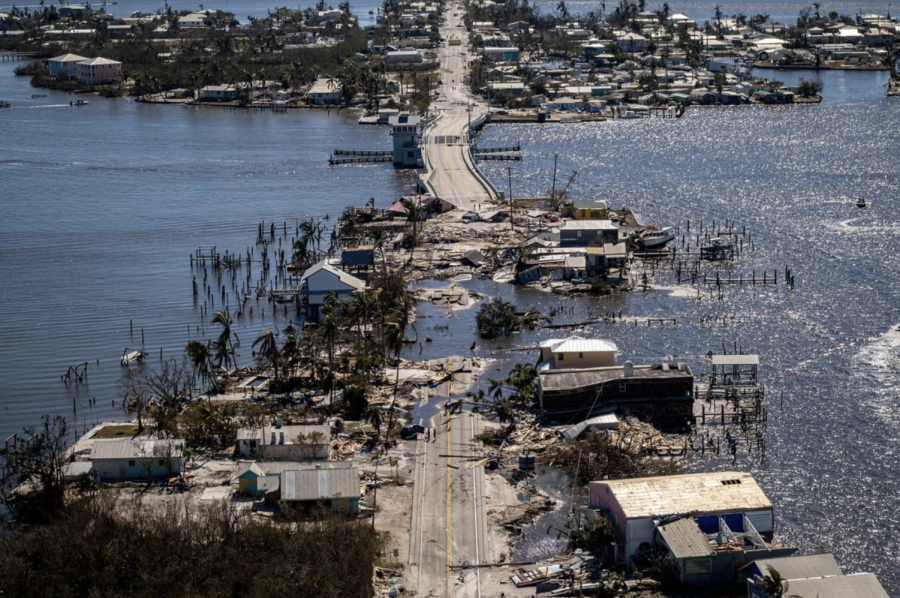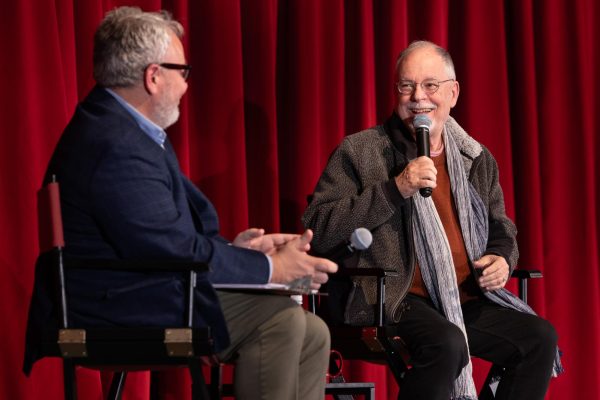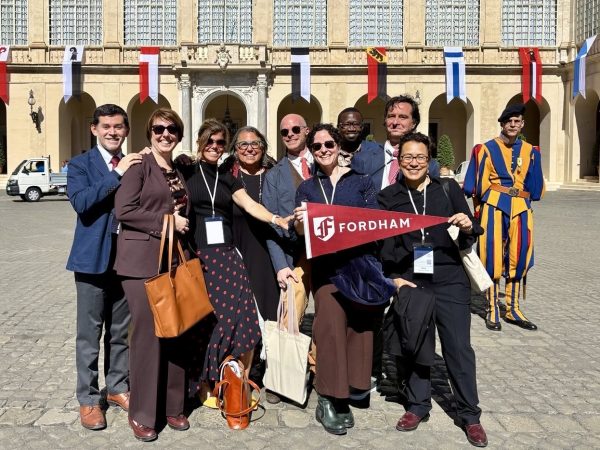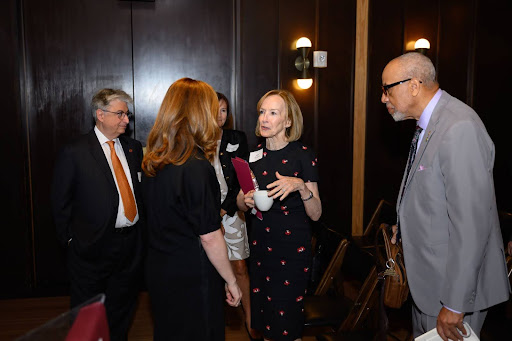Fordham Students Discuss Impact of Hurricane Ian
Hurricane Ian was a category four hurricane that hit Florida and the southern United States earlier this month. After passing over Florida, the hurricane slowed to a category one storm, making landfall in South Carolina. Those impacted are still dealing with the mental, physical and financial effects of the hurricane’s demolition. At the time of the hurricane, nearly 2.5 million people were under a type of evacuation order. As of Oct. 11, over 100 people were killed.
Hurricane Ian is one of many extreme weather events that have happened over the last few weeks. Earlier in September, Hurricane Fiona caused destruction in parts of the United States, the Caribbean and Canada. Beyond the United States, Pakistan is currently dealing with extreme flooding. Many experts claim that Pakistan is experiencing one of the worst environmental disasters in the world, with about one-third of the entire country underwater.
Many attribute the increase in extreme weather to climate change and rising sea levels.
As climate change worsens, these extreme weather events will become more frequent and more intense.
The Ram spoke with leaders of climate change and awareness based clubs at Fordham to understand the link between climate change and these weather events.
“The warming of the Earth contributes to the warming of oceans, leading to more hurricanes,” said Isis Poulose, FCLC ’25, a member of Fordham’s Climate Impact Initiative. “It causes drought and the death of plants, leading to more dust storms and tornadoes. There’s more flooding due to rising sea levels. So many disasters occur because of global warming, and they’re only getting worse with more inaction.”
Amelia Medved, FCRH ’23, president of Students for Environmental Action and Justice (SEAJ) agreed with Poulose. Medved stated that extreme weather events are likely to get worse over time as climate change progresses.
“All the science has identified warming global temperatures as a propellent of both stronger and more frequent tropical storms, so Hurricane Ian is just one instance of the type of storms we will continue to see more and more of in the next few decades,” said Medved. “Again, we should all understand that extreme weather — and all the myriad symptoms of the climate crisis — are already becoming major threats to the status-quo of human society, and will get far worse within our lifetimes.”
According to Poulose, seeing extreme weather events one after another can be discouraging.
“I just think about how people can still be in such denial about climate change when there is such a positive correlation between climate change and natural disasters,” said Poulose.
Poulose also believes that these natural disasters indicate the need for people to come together before climate change becomes irreversible.
“These events are nature’s warning that we need to work together to not harm the Earth. I genuinely believe that at this rate, nature and natural disasters are going to be the end of humanity before World War III. Maybe it will even be the catalyst of it,” said Poulose.
Medved also echoed some of the same sentiments as Poulose.
“Those of us working on environmental activism don’t sound alarm bells to create panic, but rather to call others to action. We all need to reorient our political consciousness to bring environmental and climate issues to the center,” said Medved.
Medved also pointed out that climate change causes tangible and real effects on humans, especially within the context of Hurricane Ian and extreme weather events.
Medved said: “We’ve also already reached the point where we cannot only focus on targeting the causes (curbing greenhouse gas emissions, decreasing waste, etc.) but also must organize around aiding those impacted by climate disaster, including those who lost their homes and livelihoods to Hurricane Ian.”
Helping offset climate change and extreme weather effects can be localized. There are things that can be done at
Fordham to help the environment. This is especially important because as Poulose pointed out, extreme weather does not just affect southern and tropical regions.
“These natural disasters will become more frequent and dangerous as the world gets warmer. Hurricanes are going further up to colder regions; this can be seen, for example, last year when school was closed because of the extreme flooding from the hurricane,” said Poulose.
Poulose recommended students take an individualized approach to reducing their climate impact.
She advised students to start doing little things like consuming less meat, avoiding fast fashion brands, turning off lights and taking shorter showers, which can all help to offset climate change.
“We aren’t perfect, but addressing our mistakes and actively making a choice to be better is the best thing we can do,” said Poulose.
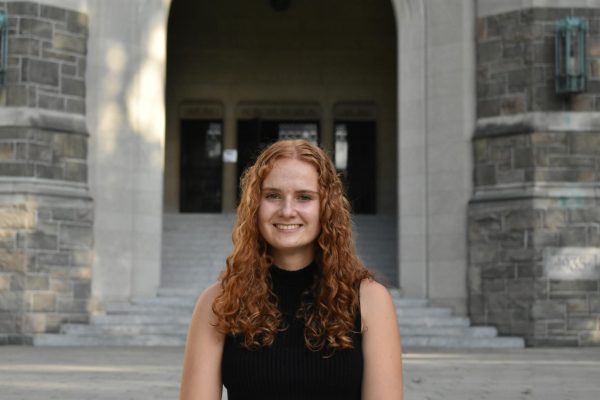
Isabel Danzis is a senior from Bethesda, Md. She is double majoring in journalism and digital technologies and emerging media. The Ram has been a very...



































































































































































































